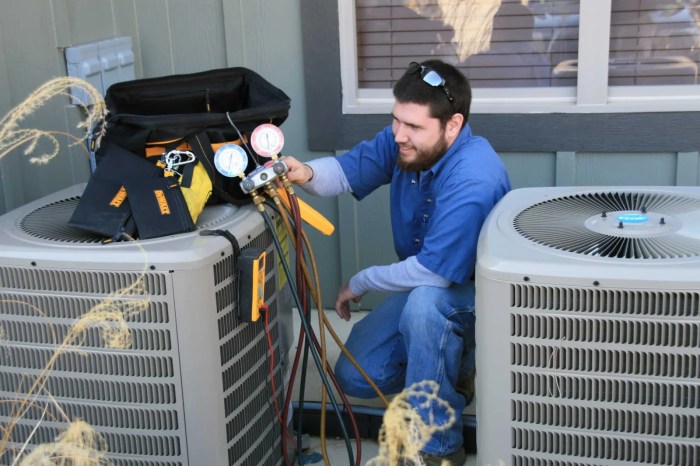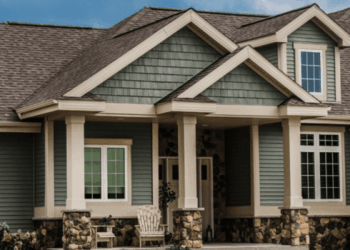When it comes to central air repair near me, prioritizing timely maintenance is key to preserving indoor comfort and optimizing energy efficiency. Neglecting these crucial services can lead to higher costs and discomfort in the long run. Let's delve into the significance of central air repair and explore common issues that may arise, along with essential tips for finding reliable repair services in your local area.
Importance of Central Air Repair Services

Timely central air repair is crucial for maintaining indoor comfort. When your central air system is not functioning properly, it can lead to uneven cooling, increased humidity, and poor air quality. This can make your home or office uncomfortable and unpleasant to be in, especially during extreme weather conditions.Neglecting central air repair can have a significant impact on energy efficiency and cost.
A malfunctioning system will have to work harder to cool your space, leading to higher energy consumption and ultimately higher utility bills. In addition, ignoring minor issues can result in major breakdowns that require expensive repairs or even system replacement.Regular maintenance is key in preventing the need for extensive repairs.
By scheduling routine inspections and tune-ups, you can catch small problems early on and address them before they escalate into larger issues. This not only helps in prolonging the lifespan of your central air system but also ensures that it operates efficiently, saving you money in the long run.
Common Central Air Issues

When it comes to central air systems, there are a few common issues that homeowners may encounter. These issues can range from minor malfunctions to more serious problems that require professional repair. It's important to be aware of these common issues so that you can address them promptly and prevent any further damage to your central air system.
Refrigerant Leaks
One of the most common issues with central air systems is refrigerant leaks. Refrigerant is the substance that cools the air in your system, and if there is a leak, it can lead to decreased cooling efficiency and potentially damage your compressor.
Signs of a refrigerant leak include warm air coming from the vents, hissing or bubbling noises, or ice buildup on the evaporator coils.
Compressor Issues
Another common problem with central air systems is compressor issues. The compressor is responsible for circulating the refrigerant through the system, and if it malfunctions, your system may not cool properly. Signs of compressor issues include loud noises, reduced cooling performance, or the system not turning on at all.
Signs You Need Central Air Repair
It's important to recognize the signs that indicate your central air system needs repair. Some common signs include strange noises coming from the unit, uneven cooling throughout your home, a sudden increase in energy bills, or a lack of airflow from the vents.
If you notice any of these signs, it's essential to contact a professional for a thorough diagnosis and repair.
Importance of Professional Diagnosis
While it may be tempting to try and diagnose and repair central air issues yourself, it's crucial to seek the expertise of a professional. Professional HVAC technicians have the knowledge and experience to accurately diagnose the problem and provide the necessary repairs.
Attempting to fix central air issues without the proper training can lead to further damage and potentially costly repairs down the line.
Finding Local Central Air Repair Services
When looking for local central air repair services, it's important to choose a reputable company that you can trust to get the job done right. Here are some tips to help you find the best central air repair services near you
Checking Certifications and Licenses
Before hiring a central air repair service, make sure to check for certifications and licenses. This ensures that the technicians are trained and qualified to work on your system. A reputable company will have these credentials readily available for you to verify.
Verifying Credibility and Reliability
To ensure that you are hiring a reliable central air repair technician, you can do a background check on the company. Look for customer reviews and testimonials online to get an idea of their reputation. Additionally, you can ask for references from the company to verify their credibility.
Cost Factors of Central Air Repair
When it comes to central air repair services, the cost can vary depending on several factors. Understanding these cost factors can help you budget effectively and explore financing options if needed.
Complexity of the Repair
The complexity of the repair needed is a significant cost factor when it comes to central air systems. Simple repairs such as replacing a capacitor or cleaning the coils will generally cost less compared to more complex issues like a compressor replacement or refrigerant leak repair.
The more labor-intensive and time-consuming the repair, the higher the cost is likely to be.
Age and Condition of the System
The age and condition of your central air system can also impact repair costs. Older systems or those that have not been properly maintained may require more extensive repairs, leading to higher costs. Additionally, if certain parts are no longer manufactured or readily available, sourcing them can also add to the overall repair expenses.
Extent of Damage
The extent of damage to your central air system will play a role in determining the repair costs. Minor issues may only require simple fixes, while major damage such as a complete system breakdown or extensive component failure will result in higher repair expenses.
It is essential to have a professional assess the extent of the damage to provide an accurate cost estimate.
Budgeting and Financing Options
To budget for central air repair, it is crucial to get multiple quotes from reputable HVAC companies to compare prices. Setting aside a portion of your savings specifically for home maintenance emergencies can also help cover unexpected repair costs. If the repair expenses exceed your budget, consider exploring financing options such as HVAC financing programs offered by some companies or personal loans to spread out the cost over time.
Last Point
In conclusion, central air repair near me plays a vital role in maintaining a comfortable indoor environment and controlling energy costs. By understanding the importance of timely repairs and how to identify common issues, you can ensure that your central air system operates smoothly and efficiently.
Remember to prioritize regular maintenance and seek professional help when needed to keep your system running optimally.
Commonly Asked Questions
What are the signs that indicate I need central air repair?
If you notice reduced airflow, strange noises, or inconsistent cooling/heating, it's time to consider central air repair.
How can I find reputable central air repair companies near me?
Look for companies with positive reviews, proper certifications, and licenses. Asking for recommendations from friends or family can also be helpful.
What are the common cost factors in central air repair?
Factors like the extent of repairs needed, replacement parts, and the complexity of the issue can impact the overall cost of central air repair.














